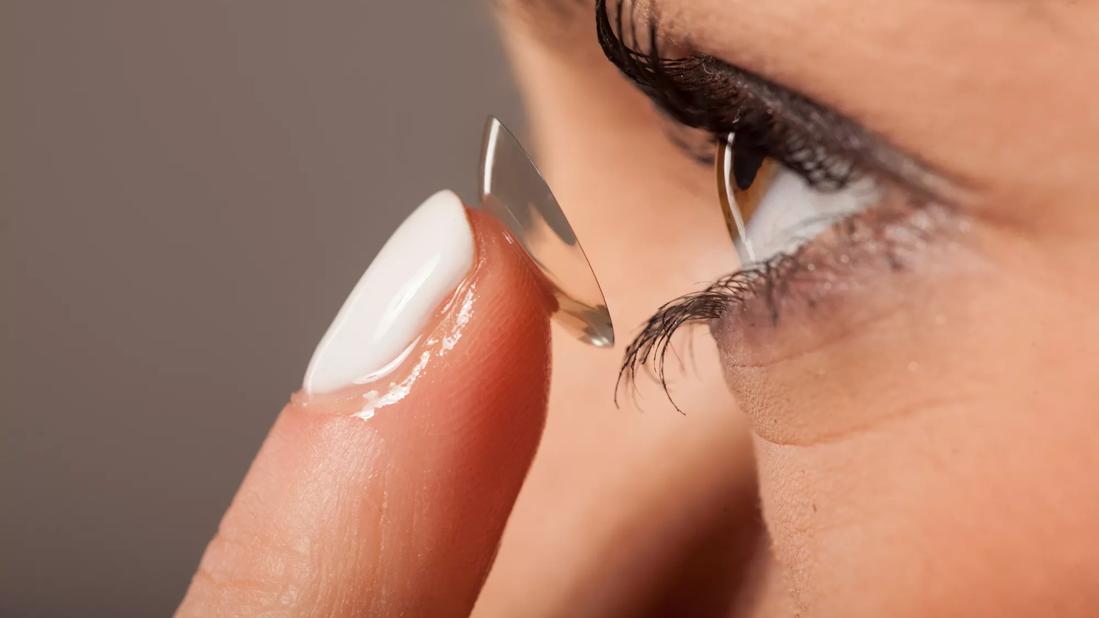Redness, pain and blurred vision? See your doctor now

Image content: This image is available to view online.
View image online (https://assets.clevelandclinic.org/transform/43c6aa0f-70d4-4eb7-8771-d17c10c1515d/ContactLens2_jpg)
Could You Be Allergic to Your Contact Lenses or Solution?
By: Richard Gans, MD
Advertisement
Cleveland Clinic is a non-profit academic medical center. Advertising on our site helps support our mission. We do not endorse non-Cleveland Clinic products or services. Policy
If you wear contact lenses, you know that they often make things worse when allergies or infection are irritating your eyes. But it might surprise you to know that you also could have an allergic reaction to the lenses themselves or to the solution you use with them.
Many allergies that affect the eyes are seasonal or environmental — and if you suffer from those, you’re likely familiar with the itchiness and discomfort of red, irritated eyes. However, some people develop allergies to their contact lens solutions, or, in rare cases, even to the lens material itself.
We talk a lot about what you need to know if you wear contact lenses — from what to do and what not to do, to the basics you need to know if you wear them. You’ll see the same advice for protecting your eyes repeated for two main reasons:
Even if you do all the right things when it comes to contact lens care, your eyes can still get irritated.
Whether it’s allergies or infection causing the problem, you need to take extra care. You can treat both, but it’s important to know the basics and what to do if your eyes are bothering you.
Advertisement
How does it feel? You’ve already got one foreign object in your eye, so that means allergy symptoms are often more pronounced if you wear contact lenses. Red, itchy, watery or burning eyes are the main symptoms.
How do you treat it? Once you’ve confirmed that it’s allergies, you can try over-the-counter allergy eye drops. If those don’t help, you can get a prescription for eye drops from your ophthalmologist.
Some other tips:
How does it feel? In addition to all the symptoms of an eye allergy, you also may notice pain or that your eyes are extra sensitive to light.
How do you treat it? Treatment depends on what caused the infection. It’s important to see your eye doctor to find out what’s going on. Many eye infections go away on their own, but only a doctor can tell you what’s behind your infection.
It’s never a good idea to wear your contacts when you have irritated eyes, no matter what’s causing the irritation.
Make sure you have a pair of eyeglasses with an up-to-date prescription on hand, and switch to them if your eyes are bothering you. You may need to wear your glasses until the infection goes away or your allergies are under control.
The bottom line: If your eye irritation doesn’t clear up in a day, see your eye doctor as soon as possible. If you feel any eye pain at all, see your doctor immediately.
Advertisement

Sign up for our Health Essentials emails for expert guidance on nutrition, fitness, sleep, skin care and more.
Learn more about our editorial process.
Advertisement
Irritated eyes are just the beginning if you leave your contacts in too long
Contact lenses are available for virtually every prescription and lifestyle
Even contacts made for overnight use can hurt your eyes
The short answer from an ophthalmologist
The short answer from an optometrist
From scratching your cornea and tearing your retina to introducing allergens and causing infections, pawing at your peepers just doesn’t pay off
Even if you weren’t allergic to an ingredient before, you could develop an allergy over time
These step-by-step instructions could save a life
Type 2 diabetes isn’t inevitable with these dietary changes
Applying a hot or cold compress can help with pain
Pump up your iron intake with foods like tuna, tofu and turkey